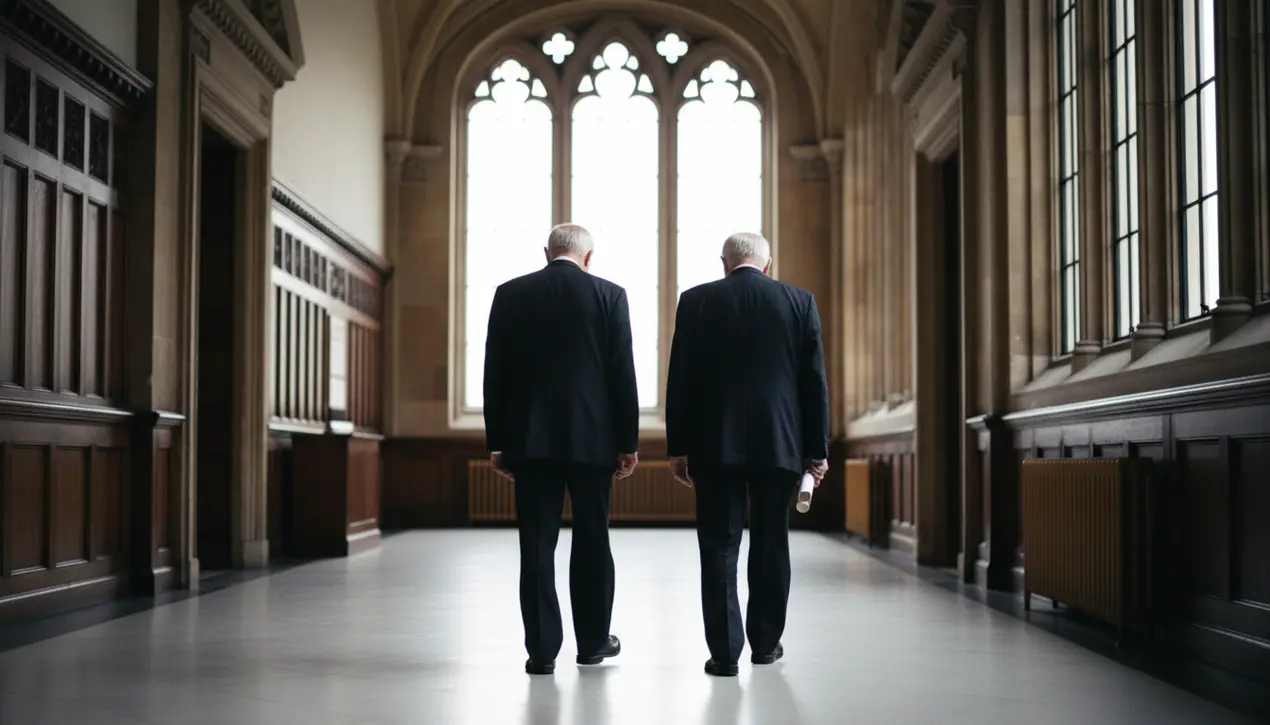
Politicscorruption & scandalsLobbying Investigations
Two peers suspended from House of Lords for breaking lobbying rules
RO
Robert Hayes
7 hours ago7 min read2 comments
In a sobering reaffirmation of parliamentary standards, the House of Lords has moved to suspend two of its long-serving members, Lord Richard Dannatt, the former head of the British army, and Lord David Evans of Watford, following a damning ruling by a parliamentary watchdog that found them in breach of lobbying rules. This disciplinary action, stemming from undercover footage meticulously recorded by the Guardian, strikes at the very heart of probity in public life, echoing historical precedents where the conduct of legislators has been scrutinized under the harsh light of public accountability.The specifics of the breach, as revealed by the investigation, involved the peers leveraging their privileged positions and access to influence government decisions for undisclosed private interests, a clear violation of the code of conduct designed to separate legislative duty from personal gain. Lord Dannatt’s case is particularly resonant; a figure once commanding the nation’s armed forces, his fall from grace invites parallels with historical figures whose later careers were marred by controversies of influence, underscoring a timeless tension between public service and private ambition.The watchdog's report, a document of meticulous procedural rigor, leaves little room for ambiguity, detailing interactions and promises made behind closed doors that fundamentally compromise the integrity expected within the Westminster bubble. This is not an isolated incident but rather a symptom of a perennial challenge within the UK's political architecture—the unelected chamber's ongoing struggle with transparency and its relationship with commercial and lobbying interests.Expert commentary from constitutional scholars already suggests that this suspension will reignite the long-smoldering debate about Lords reform, with critics pointing to this episode as incontrovertible evidence of a system in need of radical overhaul, perhaps moving towards a fully elected or significantly constrained second chamber. The consequences for the individuals are severe—a suspension is a profound mark of censure, stripping them of their parliamentary voice and allowances—but the broader ramifications for the institution are arguably more significant, eroding public trust at a time when faith in governance is already fragile.Analytically, this event fits a pattern of scandals that have periodically rocked British politics, from the cash-for-questions affair of the 1990s to more recent sleaze allegations, each cycle prompting a wave of introspection and piecemeal reform that often fails to address the underlying structural incentives. The government, now facing renewed pressure, may be forced to consider more stringent legislation governing post-service conduct for peers, potentially mirroring the lobbying acts that regulate the Commons, though such moves are often met with fierce resistance from within the Lords itself, protective of its traditions. As the dust settles, the narrative that will endure is one of accountability, a necessary if painful cleansing mechanism for a democratic system, serving as a stark reminder that no public figure, regardless of past glory or title, is above the rules designed to safeguard the public interest.
#featured
#House of Lords
#lobbying scandal
#suspension
#parliamentary watchdog
#Richard Dannatt
#David Evans
Stay Informed. Act Smarter.
Get weekly highlights, major headlines, and expert insights — then put your knowledge to work in our live prediction markets.
Comments
Loading comments...
© 2025 Outpoll Service LTD. All rights reserved.